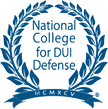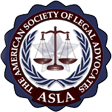Arrested on VUCSA Charges? Our Defense Attorneys Can Help.
Washington drug charges of any kind are intimidating. You may face prison, fines, and other severe penalties for a Violation of the Uniform Controlled Substance Act (VUCSA). But with Emerald City Law Group, there is a light at the end of the tunnel. Just because you’ve been charged does not mean you’ll be convicted. With a strong defense strategy, moving forward without the harshest penalties impacting your life forever is possible.
Contact Emerald City Law Group for top-notch defense for all types of VUCSA charges in Washington.
Based in Seattle, We Assist People Across Washington and Offer Virtual Consultations. Initial Consults are Free, Confidential, and We’re Available 24/7 to Answer Your Questions.
What Is Washington’s VUCSA?
In Washington, any person who possesses, manufactures, or distributes controlled substances may be charged with a Violation of the Uniform Controlled Substance Act (VUCSA).
These substances may be either prescription or illegal drugs. Washington VUCSA penalties that accompany drug charges are serious and can cause you to lose your freedom, livelihood and future professional prospects, and tarnish your record.
VUCSA Charges: What You Need to Know
Drug crimes under the VUCSA have serious penalties and collateral consequences. It’s important to know what you face if you’ve been arrested and charged.
VUCSA Penalties
The penalties for VUCSA convictions depend on many factors, like the type and amount of substance, your criminal history, and other aggravating and mitigating factors. If convicted, you may face the following penalties governed by the sentencing guidelines of the state of Washington.
Misdemeanors and felonies are defined by the Revised Code of Washington (RCW) 9A.20.021.
- Simple Misdemeanor – Up to 90 days in jail and a maximum $1,000 fine
- Gross Misdemeanor – Up to 364 days in jail and a maximum $5,000 fine
- Class C Felony – Up to five years in prison and fines reaching $10,000
- Class B Felony – Up to 10 years in prison and fines reaching $20,000
- Class A Felony – Up to life in prison and fines reaching $50,000
For example, imagine you’re convicted of possession of 5 grams of heroin but have prior criminal felony history. Given the severity of the drug involved and your record, you’re likely facing a more severe punishment than someone without prior felony convictions.
A judge may depart from the sentencing range provided by these guidelines only if certain mitigating or aggravating factors are present in your case. Certain mandatory Washington state penalties also apply in VUCSA felony cases, particularly those that involve drug offenses in a protected zone (such as a school zone) and firearm or deadly weapon enhancements.
VUCSA Charges – Aggravating & Mitigating Factors
Aggravating factors in VUCSA cases are those that make the offense more serious and may result in a harsher sentence. Mitigating factors, on the other hand, may lessen the offense’s severity and result in a lighter sentence.
Aggravating factors in VUCSA cases:
- The type and quantity of drug involved.
- Whether the drug was sold or distributed
- Whether the offense was committed near a school or other sensitive location
- Whether you were armed or used violence
- Whether you have a prior criminal record, especially for drug offenses.
Mitigating factors in VUCSA cases:
- Your age and lack of prior criminal record
- Your cooperation with law enforcement
- Your mental health or substance abuse problems
- Your willingness to undergo treatment
- Your family and community ties
- Your role in the offense (e.g., whether you were a leader or a follower)
Judges consider both aggravating and mitigating factors when sentencing defendants in VUCSA cases. The weight given to each factor will vary depending on the case’s specific facts.
Consequences of a VUCSA Conviction
Collateral consequences are the legal and social penalties you may face beyond the direct punishment imposed by the court. These consequences can significantly impact your life, making it difficult to get a job, find housing, or access other essential services.
Consequences of a VUCSA conviction:
- Difficulty finding employment.
- Denial of occupational licenses
- Difficulty obtaining housing
- Loss of government benefits
- Ineligibility for student loans
- Difficulty traveling internationally.
- Loss of voting rights
- Child custody and visitation restrictions
- Deportation
The specific collateral consequences of a VUCSA conviction will vary depending on the severity of the offense and your circumstances. However, even minor drug convictions can have serious collateral consequences.
What to Expect if You’re Facing King County VUCSA Charges
Drug cases in Washington State always begin with an arrest. You will be arrested and likely escorted to jail by law enforcement if they believe you committed a VUCSA.
In most cases, you can post bond within a few hours and leave jail. An experienced VUCSA attorney can advise you on the next steps to take.
VUCSA Arraignment
At arraignment, you will receive a formal reading of your charges. At this time, you will enter your initial plea. If you plead guilty, the judge may impose penalties based on your crime at a scheduled sentencing date. If you plead not guilty, the judge will set future court and trial dates. Pleading not guilty at the arraignment will allow your defense attorney to review your case, investigate, and commence negotiations with the prosecution.
VUCSA Case Setting Hearing
A case-setting hearing allows the court to monitor and resolve issues surrounding the case. This hearing is often when the prosecution and defense negotiate and attend court to advise the judge of the progress in the case and if future time is necessary for investigation or negotiation purposes. Pretrial negotiations often allow the parties to come to a negotiated, agreed-upon resolution that minimizes potential Washington state VUCSA penalties in the case.
Motion Hearings
Some legal motions that we may present in your Washington VUCSA case include:
Motions to Dismiss:
- Violation of your right to a speedy trial
- Unconstitutional delay in filing charges
- Unlawful detention
- Government’s failure to preserve evidence.
- Misconduct by the government
- Insufficient evidence of a crime
- Lack of probable cause to arrest
Motions to Suppress:
- Evidence of invocation of the right to an attorney
- Evidence of invocation to remain silent
- Evidence for violation of access to counsel
- Evidence for violation of the Fourth Amendment (invalid search)
- Involuntary statements
Readiness Hearings
At a readiness hearing, each party will inform the court if they are prepared to proceed to trial as scheduled. Hindering factors on either side include more evidence to be discovered, unavailability of witnesses, or courtroom availability. At this hearing, it is also possible that your attorney and the prosecution may arrive at a negotiated resolution concerning the case, followed by sentencing.
Jury or Bench Trial
Some criminal cases do proceed to trial. If you proceed to trial, you may have the option to have your case tried before a judge or a jury. A bench trial gives the judge authority as the exclusive fact finder in your case. A jury trial consists of randomly selected individuals from the community to sit as fact finders who ultimately decide if you are guilty or not guilty.
In felony cases before a jury, 12 jurors weigh the evidence and decide the case. In misdemeanor and gross misdemeanor cases before a jury, 6 jurors will hear the case. You and your attorney can decide what type of trial is best to minimize or eliminate any Washington state VUCSA penalties you face. However, opting for a jury trial is often the favored option among seasoned defense attorneys. A defense attorney will advise you as to whether proceeding to trial is in your best interest after a thorough review of your case and potential options.
VUCSA Sentencing
In the State of Washington, judges use their discretion to make sentencing decisions in criminal cases after both bench and jury trial.
The prosecution and the defense can make a sentence recommendation to the judge. However, judges have the final authority to impose the sentence they believe is most appropriate for a specific criminal conviction.
As a convicted defendant, you can speak on your own behalf before the judge at sentencing. This is called your right of allocution. You may also benefit from having family or friends speak or provide letters on your behalf to the judge before they decide on a sentence.
Washington VUCSA Info & Resources
Our VUCSA attorneys are here to help you handle drug charges and protect your rights throughout the legal process. We have answers to your questions about your VUCSA charges. If you need additional information, reach out to Emerald City Law Group for legal advice.
What Should I Do If I’m Arrested for VUCSA?
If you’re arrested for a VUCSA crime, it’s important to remain calm and assert your right to remain silent. You should also avoid speaking to the police without an attorney present.
Are All Drugs Treated Equally Under VUCSA?
No, VUCSA categorizes drugs into schedules based on their potential for abuse and medical use. For instance, Schedule I drugs like heroin are considered to have a high potential for abuse and no accepted medical use, leading to more severe penalties for violations.
Can I Face VUCSA Charges for Prescriptions?
Yes, if you’re found in possession of prescription medications without a valid prescription or if you’re distributing them illegally, you can face VUCSA charges. Always ensure you have a valid prescription and use medications as directed.
Is Marijuana Considered a VUCSA Violation?
While marijuana is legal for recreational use in Washington, certain activities, like unauthorized sale or possession beyond the legal limit, can still be considered VUCSA violations. It’s crucial to understand and adhere to the state’s marijuana laws.
What Are the Common VUCSA Defenses?
Some common defenses used in VUCSA cases include arguments of unlawful search and seizure, entrapment, lack of intent, and mistake of law. Your drug defense lawyer can help you develop a strong defense strategy.
Can VUCSA Convictions Be Expunged?
A VUCSA conviction can have long-lasting implications on your record. However, under certain conditions, individuals might be eligible for expungement or vacating the conviction, which requires legal procedures and criteria to be met.
Don’t Wait. Call a VUCSA Lawyer Today.
If you’re arrested for VUCSA, contact Emerald City Law Group as soon as possible. It’s important that we get started on your case quickly, so the evidence doesn’t disappear. If you cannot contact us, you can have a friend or family member contact Emerald City Law Group. We will help them understand the VUCSA process and how to get them out of jail.
Emerald City Law Group Will:
- Listen to what happened and help you understand the charges against you.
- Explain the potential penalties you are facing and the collateral consequences.
- Communicate openly and honestly about the status of your case.
- Determine if the police violated any of your rights.
- Challenge the prosecution’s evidence against you.
- Work to get the best outcome in your case, and try to keep your record clean.
VUCSA Defense Attorneys Serving Washington – Free Consults 24/7
Emerald City Law Group provides Seattle and the greater Washington area with high-caliber legal representation for those facing VUCSA-related accusations.
Seattle – Local Areas Served
-
- King County – Bellevue, Auburn, Kent, Renton, Federal Way, Kirkland, Redmond, Bothell, Carnation, Duvall, Issaquah, Maple Valley, Mercer Island, Sammamish, Seattle, & Woodinville
- Snohomish County – Everett, Lynnwood, and Marysville.
- Pierce County – Tacoma, Puyallup, Gig Harbor, and Lakewood
Greater Washington
- Grays Harbor
- Kittitas County
- Spokane County
- Cowlitz County
- Douglas County
- Mason County
- Skagit County
- Thurston County
- Island County
- Mason County
- Grays County
- Kitsap County
- Lewis County
- Whatcom County
- Whitman County
- San Juan County






